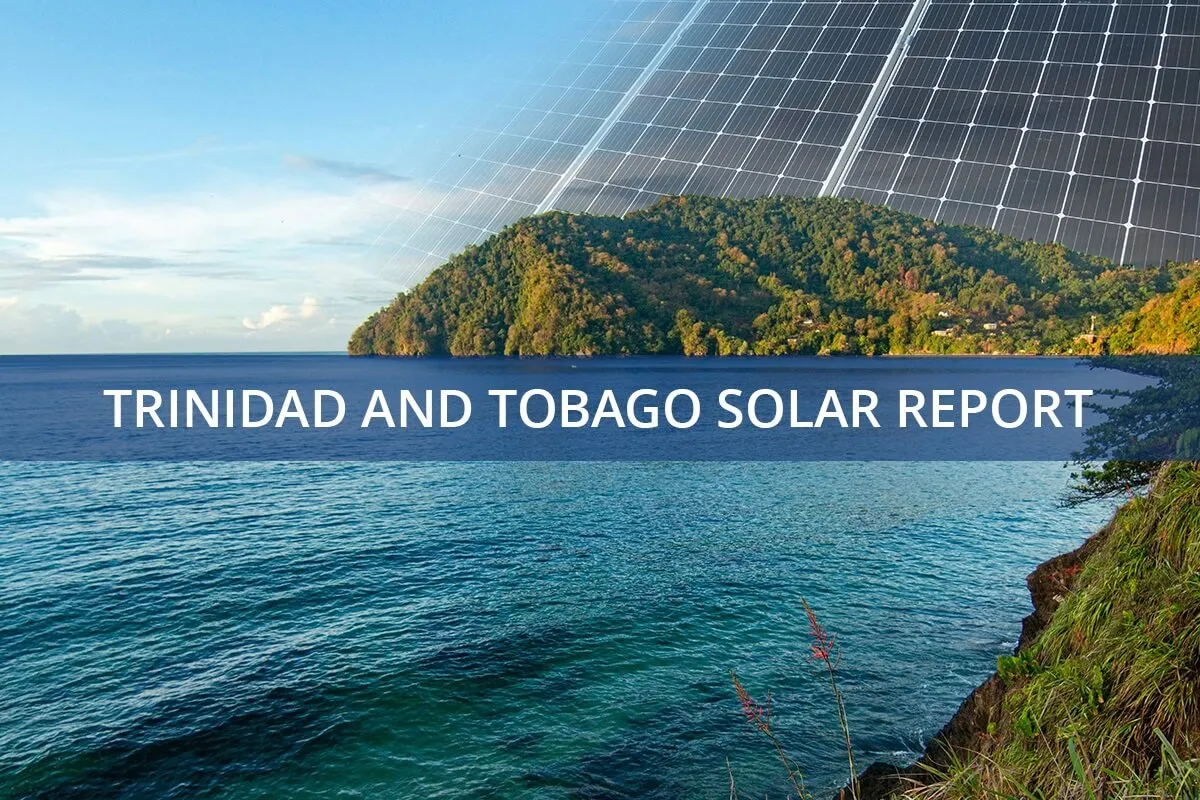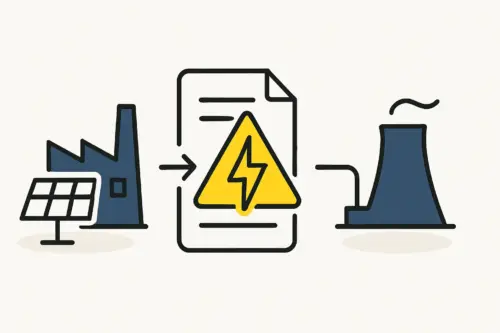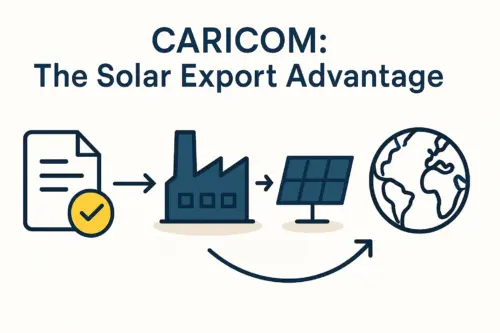An entrepreneur opening a solar module manufacturing plant in Trinidad and Tobago faces a series of critical decisions. The machinery may be selected and the factory layout planned, but production can stall on a seemingly straightforward component: the aluminum frame. Should the frames be imported from established, large-scale manufacturers in Asia, or sourced from a local extruder in Trinidad?
This choice is about far more than a simple price comparison; it’s a strategic decision that impacts cash flow, operational agility, supply chain resilience, and even the brand identity of the final product. For a new manufacturer in the solar industry, navigating this choice is a critical early test of their business strategy.
The Critical Role of the Aluminum Frame
The aluminum frame of a solar module plays several essential roles. It provides structural rigidity, protecting the delicate solar cells and glass from mechanical stress during transportation, installation, and exposure to weather events like high winds. The frame also serves as the primary mounting structure, allowing the module to be securely fastened to a racking system.
The frame’s design, alloy composition, and quality are therefore far from trivial details. A poorly manufactured frame can compromise the entire module’s durability and bankability, leading to premature failure and reputational damage. The decision of where to source this component is one of the first major tests of a new manufacturer’s supply chain strategy.
Analyzing the Import Option: The Global Standard
For decades, the default option for many module manufacturers has been to import frames from large, specialized producers, primarily located in China and Southeast Asia. This approach is built on the globalized model of economies of scale.
Advantages of Importing
- Lower Unit Cost: Due to immense production volumes, international suppliers can often offer a lower price per frame than smaller, local manufacturers.
- Proven Quality and Experience: These suppliers have extensive experience manufacturing frames specifically for the photovoltaic industry. Their processes for extrusion, cutting, and anodizing are optimized for solar module requirements, ensuring consistency.
- Wide Selection: A global supplier will have a vast catalog of standard and custom profiles available, accommodating various module designs and technologies.
Challenges of Importing
- Complex Logistics: Importing involves managing international freight, customs clearance, and potential port delays. A typical 40-foot container holds several thousand frames, and shipping from Asia to the Caribbean can take 4 to 8 weeks.
- High Capital Requirement: Manufacturers must order in large quantities (often a full container load), tying up significant working capital in inventory that is in transit or stored in a warehouse. This can be a substantial burden on initial operational costs.
- Supply Chain Vulnerability: As recent global events have shown, international shipping is susceptible to disruption. A single delay at a major port can halt an entire production line for weeks, highlighting the risks of complex supply chain management.
Based on experience from J.v.G. turnkey projects, the landed cost of an imported frame in the Caribbean can sometimes be 30-50% higher than its factory gate price in Asia, once freight, insurance, and duties are accounted for.
The Case for Local Sourcing in Trinidad
The presence of an aluminum extrusion industry in Trinidad and Tobago presents a compelling alternative. Partnering with a local supplier like Trinidad and Tobago Extrusion Company (TALCO) or another capable firm can fundamentally change the operational dynamics for a module assembly business.
Strategic Benefits of a Local Partner
- Just-in-Time Inventory: A local supplier can deliver frames in smaller batches on a weekly or even daily basis. This drastically reduces the need for large, on-site warehousing and frees up working capital.
- Reduced Lead Times and Shipping Costs: The logistical chain is simplified to a truck delivery. This eliminates international freight costs, customs brokerage fees, and the long, unpredictable transit times associated with ocean shipping.
- Enhanced Collaboration: Proximity allows for direct collaboration on custom profile designs and rapid quality control feedback. If an issue arises, it can be addressed in person within hours, not weeks.
- Supporting Local Content: Sourcing locally strengthens the domestic economy and can be a powerful marketing tool, allowing the final product to be branded as ‘Made in Trinidad and Tobago.’ This can be advantageous when bidding on government or state-affiliated projects.

Potential Hurdles with Local Suppliers
- Quality Assurance: The primary concern is whether a local extruder, who may not specialize in solar components, can consistently meet the precise tolerances and anodizing specifications required. For a coastal environment like Trinidad, an anodizing layer of at least 15 microns is critical to prevent corrosion. Diligent quality control is non-negotiable.
- Unit Cost: The per-unit price from a local supplier may be 15-25% higher than that of a mass-producing Asian competitor. This premium, however, must be weighed against the significant savings in logistics and inventory holding costs.
- Capacity and Experience: The local supplier must have the capacity to meet the production volume of the solar module manufacturing plant. Verifying their experience with similar precision-engineered products is crucial.
A Comparative Framework for Decision-Making
There is no single right answer. The optimal choice depends on the manufacturer’s business model, production scale, and risk tolerance. The following framework helps evaluate the trade-offs.
| Factor | Importing | Local Sourcing |
|---|---|---|
| Unit Cost | Lower unit cost | Potentially higher cost per unit |
| Logistics Cost | High costs for freight, duties, brokerage | Low cost, just local trucking |
| Lead Time | Long lead time (4-8 weeks) | Short lead time (days) |
| Inventory Capital | High capital tied up in large orders | Low capital, just-in-time delivery |
| Quality Assurance | Proven experience in PV industry | Requires diligent vetting |
| Supply Chain Resilience | Vulnerable to global disruptions | High resilience to shocks |
| Collaboration | Difficult due to time zones and distance | Easy, direct, in-person |
An entrepreneur must ask: Is the lower unit cost of imported frames worth the risk of supply chain disruption and the high capital cost of maintaining a large inventory? Or does the operational flexibility and lower capital risk of local sourcing justify a potential per-unit cost premium?
Frequently Asked Questions (FAQ)
What is an aluminum ‘profile’?
The profile is the specific cross-sectional shape of the extruded aluminum. For solar panels, this shape is engineered with grooves and channels to hold the glass and backsheet, as well as to facilitate mounting.
What is ‘anodizing’ and why is it important for Trinidad?
Anodizing is an electrochemical process that creates a strong, corrosion-resistant oxide layer on the surface of the aluminum. For a tropical, marine environment like Trinidad, a thick and high-quality anodized coating is essential to protect frames from salt spray and humidity, preventing degradation over the 25+ year lifespan of the solar module—a critical factor for achieving module certification.

Do I need a special alloy for solar frames?
Yes, solar frames are typically made from specific aluminum alloys, most commonly 6063-T5 or 6005-T5. These alloys offer a good balance of strength, extrudability, and corrosion resistance, making them ideal for the application.
How much does the frame contribute to the total module cost?
The aluminum frame typically accounts for 8-12% of a solar module’s total bill of materials (BOM). While not the most expensive component, its impact on logistics and quality makes the sourcing decision a critical one.
Conclusion: A Strategic Decision, Not Just a Purchase
Choosing between local and international suppliers for aluminum frames is a foundational decision for any new solar module manufacturer in Trinidad. The import model offers the perceived safety of established scale and lower unit prices but comes with significant financial and logistical risks. The local sourcing model offers unparalleled operational agility and capital efficiency but demands rigorous supplier vetting and quality control.
The right path depends on a thorough analysis of total landed costs, cash flow projections, and long-term business strategy. Making the right choice requires a deep understanding of both the global solar market and local industrial capabilities—a core focus of the structured guidance available to entrepreneurs entering this field.







